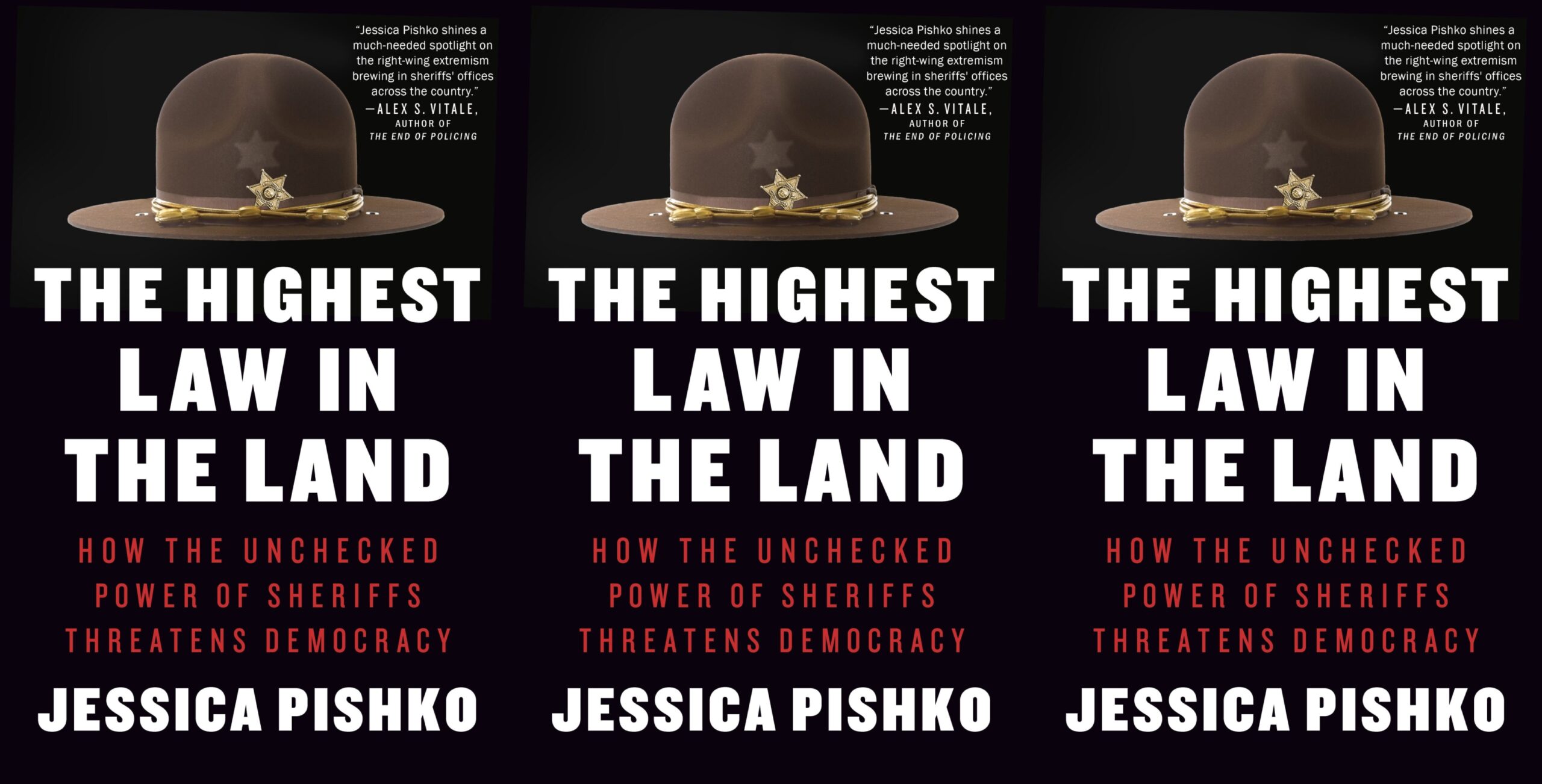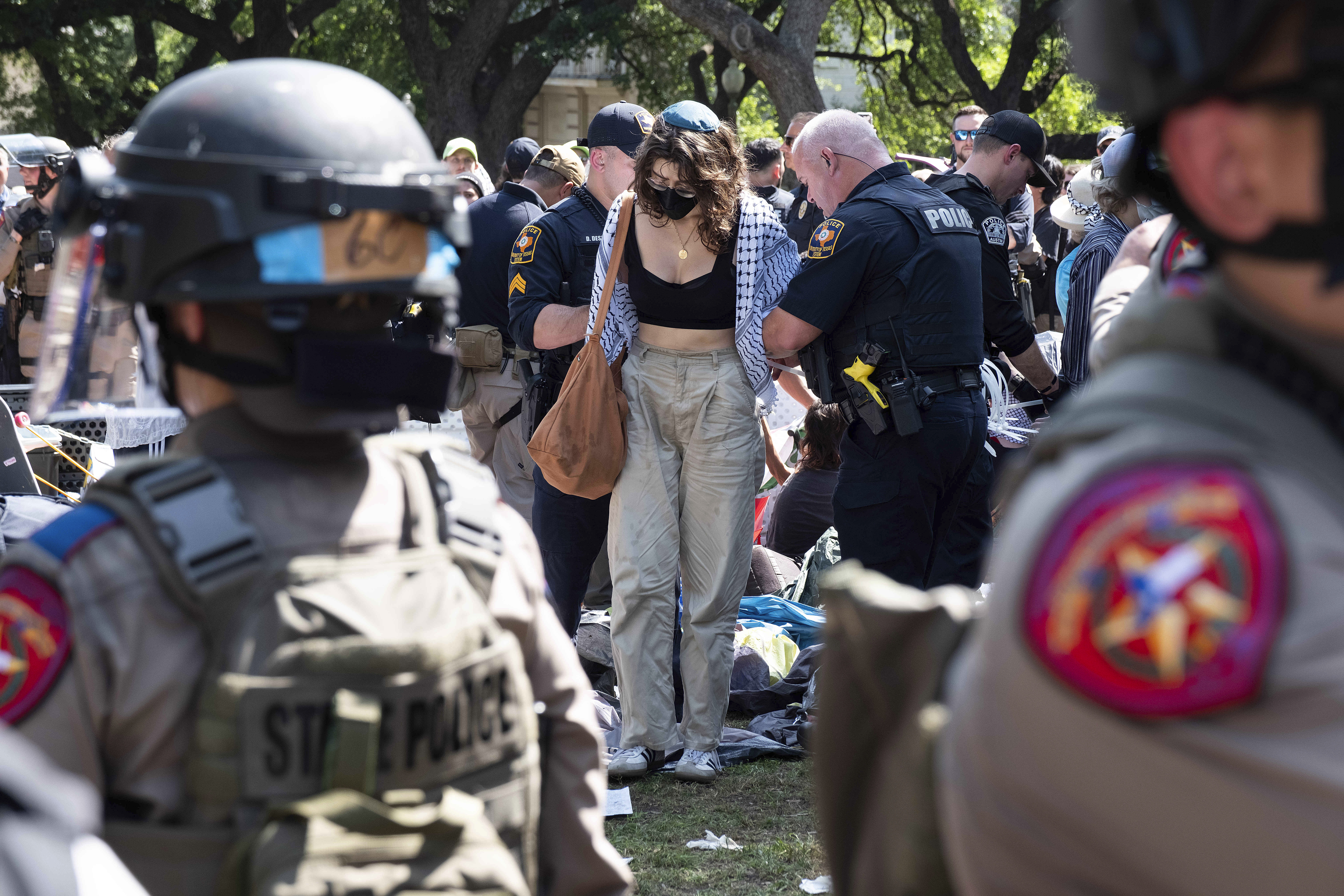
Remembering a Social Justice Lawyer Extraordinaire
Attorney Jeff Blackburn, a crusader for the innocent, fought injustices across Texas in his improbable, utterly original, and often profane life.
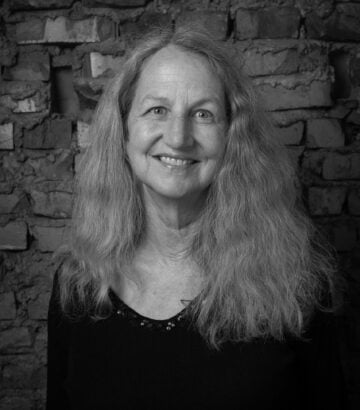
Jeff Blackburn’s rough road to redemption and an unconventional kind of legal superstardom in the rough-and-tumble world of Texas criminal justice reform began the day his fifth wife committed suicide in his law office in Amarillo. Blackburn kept a bust of Lenin in that office, which was covered that day in the blood of his beloved.
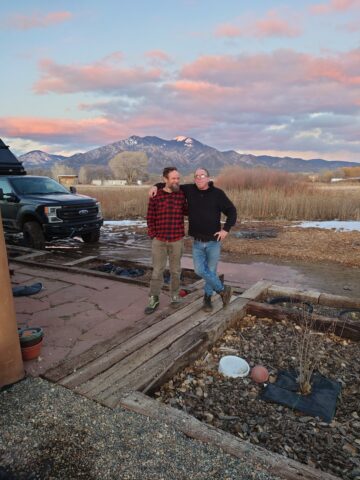
By that time, Blackburn had already talked to a large group of people busted for drugs in 1999 in a tiny Panhandle town called Tulia—three dozen African Americans who all seemed to have been wrongfully arrested and railroaded in court. But in April 2001, he felt like his life was over.
His friend and ally, another West Texas attorney named Kevin Glasheen, arrived and whisked him away to the San Juan Mountains. They camped in the wilderness, where Blackburn cried, declared himself a failure, and then made a resolution that would change his fate—and would change Texas, too:
“We were sitting out there by a fire at about this lowest point in his life when he said, ‘You know, this work I’m doing with these wrongfully convicted people. And this justice project that I’m doing. That’s all I’ve got. All I’ve got is this work.’ But at that moment, he realized that was enough.”
Blackburn vowed to pour his considerable legal talents into Tulia, the town whose name would become synonymous with the worst brand of Lone Star law enforcement. Ultimately, he helped get everyone exonerated who’d been convicted through the work of a crooked cop, a flawed drug task force, and the systematic profiling and railroading of innocent black men and women.
“His work was incredible because not only did he get all these guys acquitted and exonerated, and then he got the cop who was involved in the whole thing indicted for perjury and sent to prison. There’s no bigger, better victory,” Glasheen said.
Blackburn’s work didn’t stop in Tulia. He helped abolish Texas drug task forces, pushed for legislative reforms, and co-founded the Innocence Project of Texas. He went on fighting until he died on February 7 at 65 of complications from kidney cancer. (A public memorial is scheduled for Saturday, March 4, in Amarillo.)
Here are stories friends swap about how one brilliant, half-crazy, and often profane attorney took on what seemed like lost causes, recruited unlikely allies, and helped make Texas an improbable leader on reforms intended to help the innocent and the wrongfully convicted.
Kevin Glasheen first met Blackburn in the 1990s. One of his first favorite Blackburn memories comes from a day he got stuck in a courtroom with a cranky West Texas judge, who seemed to be upholding every possible objection his opponents could invent.
Glasheen: Jeff could always make an entrance, and so he breezes in … and the judge is all red-faced, and Jeff says, “So, judge, are you still being the mean ol’ crusty old bastard that you’ve always been, or is today different?” And the judge laughed! Jeff and him had gone back far enough. … Jeff had just enough disrespect for everybody and everything that he could stand up to anybody.
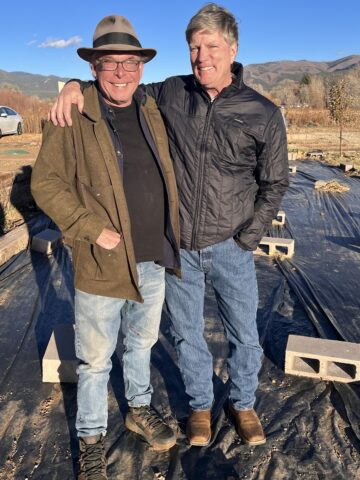
The two West Texas-based attorneys sued meatpackers together on behalf of injured employees (and also got sued by the meatpackers). Later, they took on the state.
Glasheen: Jeff was working on a case involving the Texas State Technical College in Amarillo. The dean of students and the school’s chief of police had discovered fraud and corruption going up to the board of directors. And they were investigating and reporting it, and they were fired. And so Jeff brought that case to me and said, “Let’s sue the state for whistleblower violations.”
We ended up trying that case in Austin together and got a $36 million jury verdict against the State of Texas. The judge reduced our verdict, but the Legislature paid. And we got a check signed by George W. Bush, [then] the governor, for more than $3 million.
The two walked around Austin, staring in disbelief at that check. Bigger victories were ahead.
Nate Blakeslee met Blackburn while working for the Texas Observer covering the news of mass drug arrests in Tulia for a story called the “Color of Money.”
Blakeslee: And my first impression, I guess the same as everybody else is, you know, can this guy possibly be real? If you go to Amarillo, certainly one of the most conservative places in Texas and arguably one of the most conservative in the country, and you walk into this guy’s law office and he’s got posters of Mother Jones and Big Bill Haywood, and he wants to talk to you about Marxist theory.
He was this really radical leftist who lived in this really conservative town. And so every day was a frustration to him to butt heads with the people who ran Amarillo because they obviously did not see the world the way he did. But I think he also really loved Amarillo. And he knew that it was full of unusual characters. … When I first started doing my reporting, there was a lot of organizing going on in Tulia by some locals to draw attention to the bust. And I don’t think at that time that Jeff and those local organizers were quite on the same page. So, I would go to Amarillo; I would talk to him about the cases that he knew about. And then I would go to Tulia.
The difference between Jeff and kind of the average criminal defense lawyer is that he always thought in terms of an organizer and like someone who wanted to change public policy—not just represent his own client’s interests, but be part of the movement and be part of something that was going to change the system.
He was this really radical leftist who lived in this really conservative town.
A lot of people wanted the story to be just about one bad cop, Tom Coleman. It was easy because he’s like a bad guy from central casting. There wasn’t quite as much inclination to talk about what it was that made it possible for someone like Coleman to be hired and excel. … And the answer was that the system that was in place to hire these narcotics officers was so poorly managed, so badly supervised, and so, so poorly conceived from the get-go. And that was what needed to change.
Blakeslee later wrote a book about Tulia, which featured Blackburn and others who fought to get everyone out of prison—and civilly sued public officials and drug task forces who had put them there. The Tulia fights stretched out for years.
Blakeslee: After the story broke and the Legislature passed the so-called “Tulia bills,” and everyone agreed that it was a travesty and that the system needed to change, it was still the case that there were over a dozen people locked up with no post-conviction representation and no real seeming momentum to get them out.
I think people would probably say that Blackburn and Vanita Gupta of the ACLU were sort of the main organizers, and she was the one that recruited pro bono big law firms. Both were part of the group that settled the civil lawsuit against the drug task forces and other players.
Part of the settlement was that the head of the task force in Amarillo had to take retirement. So he was essentially forced out of his job. And then Coleman, the dirty narc, he had already been fired from another task force before the hearings even began. And then he was indicted and convicted of perjury.
Blakeslee remembers how Blackburn privately celebrated.
Blakeslee: It was late one evening at the Swisher County Courthouse. And Blackburn and like ten of the legal team were up there with the district attorney and the county attorney and their insurance companies. And they were all trying to hammer out the terms. … It got really late and everybody went home, and I was just hanging outside of the courthouse. And Jeff came down to give me an update. He’s like: “We’ve done it. We’ve won. They’re giving us everything we want. We’re just crossing the Is, dotting the Ts”’
And he was fired up because it had been years of working on this. And victories like that are so few and far between, especially in that part of the world doing that kind of work.
The Swisher County Courthouse, it’s got to be the world’s ugliest courthouse. I think at one time it was one of those beautiful Victorian ones, but now it just looks like a bowling alley in Plano or something. And they had this monument in the front, and it had some really self-congratulatory inscription on there like hard work and Christian principles. … Swisher County through a hundred years of history or something. And he’s like: “I have always hated that thing.”
And he went over and just started peeing on it. And I was laughing and taking notes.
Scott Henson, a longtime criminal justice reformer who now runs the Grits for Breakfast blog, formed a longtime alliance with Blackburn in the 1990s. Together, they worked for years to change Texas laws based on the Tulia scandals. But their relationship began with a stormy, drawn-out argument over email. Henson, then the Police Accountability Project director for the ACLU of Texas, wanted innocent men and women from Tulia to come to Austin to testify. Blackburn was opposed.
Henson: Jeff thought this was going to screw their case up, and they’d say something that would get their clients in trouble. And so yeah, Jeff and I basically just fought. But once he witnessed it firsthand and saw that it actually really did make a huge impact, and we started to get significant legislation passed, he was on board with the tactics.
Henson, from a small town in East Texas, recognized Blackburn, who grew up in Amarillo and in Houston, as a kindred spirit. One of several Tulia-related reforms that passed in 2001, the corroboration law, basically outlawed convictions based solely on the word of a drug informant.
Henson: The law went into effect in September. And I believe it was the Dallas Morning News where one of the reporters called around to five or six of the biggest DAs’ offices and asked them how many cases they dismissed because of this law. And they came up with it around 800.
That was a life-changing revelation for Jeff. I called him, and there was a long pause on the other end of the line, and he says, “God, I wouldn’t ever get that many cases dismissed in ten lifetimes.”
By the 2003 session, Jeff was an active participant. And then later, when we worked together at the Innocence Project of Texas, we did the same thing with the exonerees themselves. We would bring them to Austin and train them on how to lobby and focus on the right offices and give them all the talking points and let them be their own messengers. … And that method of combining the lobby effort with legal work really was powerful.
Blackburn and Henson and others successfully lobbied then-Governor Rick Perry to end Texas’ drug task forces in 2006–after seven years of effort.
Henson: That is an underappreciated story. It’s the most successful abolish the police campaign in American history.
When we started, there were 53 drug task forces that employed around 700 undercover narcotics cops, and they got wiped off the face of the earth. And those 53 agencies were making between 12,000 and 14,000 drug arrests a year.
And so, you know, you start to look at those numbers. I mean, there are 12,000 to 14,000 fewer arrests every year because of something we did. That’s infectious.
Cory Session met Jeff Blackburn in 2007 after spending years trying to find someone who would work to clear the name of Tim Cole, his half-brother, a veteran, and Texas Tech student who’d been wrongfully convicted of rape in 1986. Tim Cole died of asthma in 1999 while serving time for a crime he didn’t commit. Another man had confessed via letter.
Session: I got on the phone and started calling lawyers everywhere. Well, there’s potentially DNA evidence, and nobody wanted to hear it. And I saw that there was an Innocence Project at Texas Tech. And I left a voicemail: My brother, he died in prison, but this other guy is in prison right now claiming he did it.
Next thing I know, Jeff Blackburn called back. He said: “This case! Forget about DNA. This case is fraught with misconduct, just error after error.” And then he said, “Can I take on this case?” I thought I was talking to a radio announcer. He had the voice of a radio announcer.
In 2008, Blackburn accepted the family’s invitation to visit Tim Cole’s grave in Fort Worth with the rape victim, who supported efforts to posthumously exonerate the man wrongfully convicted of assaulting her. Session remembers standing there at the grave together when Blackburn looked down at the ground and said. “We’re gonna fix this shit deal.”
Cole was exonerated, and in 2010, Perry signed the only posthumous pardon in Texas history. Together with Cole’s mother, Session, and other relatives, Blackburn and Henson lobbied to increase compensation for exonerees. Blackburn was thrilled when he learned Session had previously worked for a North Texas legislator and knew key players. They collaborated with former Texas Senator Rodney Ellis, then a junior senator, and got the annual amount of compensation boosted from $25,000 to $80,000 for each year of incarceration as well as an annuity. That law is called the Tim Cole Act.
In 2012, Blackburn met Austin attorney Jessy Tyler when he spoke at a workshop sponsored by the Texas Indigent Defense Commission. “He was saying a bunch of stuff about indigent defense that I had said privately—and I thought I don’t know why people think this guy is nuts or difficult to work with—he seems completely reasonable to me,” Tyler recalls.
They fell in love, though Blackburn’s idea of a first date was inviting her in August 2013 to a Continuing Legal Education event on innocence. She still remembers hearing exonerees speak that night about how Blackburn helped them. “It was like a perfect setup. There were all these people talking about how important he was for their lives.”
Over time, she learned a secret about what made Blackburn so fearless.

Tyler: He was born with his leg twisted in and had to wear this gigantical brace where every week they would have to turn this screw so that his legs would both be facing forward. He was ostracized by the other kids because he looked kind of Frankenstein’s monster-y. He was ostracized as well because he wasn’t nearly as mobile. Because of that experience, he dealt with this very high level of physical pain and really directed all of his attention inward and spent a lot of time reading and thinking and listening to music. I think that really structured his whole outlook on life.
So he knew that weird horrible things can happen to you at any time, and that’s not your fault, and people can turn against you even if it has nothing to do with you or your actual personess. There’s always refuge in books and in ideas.
I’m sure he was proud of his accomplishments. But the type of person he was, there was never enough. He was always trying to think of the next thing and the next, next thing.
As opportunities to use DNA tests to prove innocence began to dry up, Blackburn joined other advocates in Texas who took on junk science, challenging arson rulings and the “satanic panic” that had led to wrongful convictions for child sex abuse. He never gave up his law office in Amarillo and continued to advocate for improvements in indigent defense. In his last years, he bought a place near Taos. His final project was creating a new civil rights organization: the Rio Grande Regional Justice Project.
In 2022, when Blackburn learned he had terminal cancer, he elected not to pursue longshot treatment. Instead, he came up with a playlist for his public memorial, set for Saturday, March 4, and called on Tyler, Glasheen, Blakeslee, Henson, Session, and other close friends and family to visit. They sat around and swapped stories. “It was not a hard decision to go for the end; we loved each other. In the end, we all loved him enough to bear his pain for him,” Tyler said via email.
Session couldn’t join the others in New Mexico. But he argues that Blackburn’s spirit will never really leave Texas.
Session: You can go on to a lot of prosecutors’ offices around the state. Some Jeff never met. You can go into courthouses where Jeff has never been. But I think if you held a blacklight or you did some sampling, you will see Jeff’s DNA across this state at the capital and in courthouses. He has affected so much of criminal justice around the state.
And a lot of people will never know that they do things a certain way now because of the hand of Jeff Blackburn, because of the voice of Jeff Blackburn.

